This article first appeared in the UConn Business magazine, Volume 3, Issue 1 (Fall 2012)
Dr. Karla H. Fox Reflects on Past Success, Contributions, and Continued Service
 A distinguished educator and administrator at the University of Connecticut since 1976, Dr. Karla H. Fox retired from her faculty position as of August 1. Here, she reflects on her time serving the University and the School of Business, sharing some of her continuing projects and activities in her new position as Special Assistant to the Provost.
A distinguished educator and administrator at the University of Connecticut since 1976, Dr. Karla H. Fox retired from her faculty position as of August 1. Here, she reflects on her time serving the University and the School of Business, sharing some of her continuing projects and activities in her new position as Special Assistant to the Provost.
Teaching and Research
Reflecting on the past three decades, Dr. Fox proclaims, “[the University of Connecticut] is a dramatically different school than when I started [working here]. UConn has transformed into a truly research-focused institution. We’ve reversed the “brain drain” of 30 years ago, and now we’re a top school of choice for many students.”
In the 1990s, the School of Business made a strategic decision to become a technology leader among business schools nationwide. “It shows,” says Dr. Fox. “We’ve become much more professional in the way we present teaching and instruction, partly because we have access to the latest technologies.” During her time as Interim Dean, Dr. Fox contributed to this availability by implementing the latest in conference technology, enabling meetings or classes to run across campuses and to better link the undergraduate and MBA programs in Storrs, Hartford, Stamford, and Waterbury.
“Building upon the School’s history of excellent academics, we now have an expanded emphasis focused more on research and outreach,” Dr. Fox notes. Securing the approval of then Provost Peter Nicholls, Interim Dean Dr. Fox led the School in hiring 24 new faculty and staff members last year. “Hiring was critical; it enabled us to bring up new programs and strengthen others, such as the Master of Science in Financial Risk Management (MSFRM) program [in Stamford], which we were able to expand to Hartford,” she notes.
Outreach and service have entered the forefront in the last five years, according to Dr. Fox, who plans to continue efforts in this area.
Outreach: Stamford Initiatives
Dr. Fox’s involvement with the Stamford campus has come full-circle. She was one of the main individuals responsible for developing the new Stamford Downtown Campus in the mid-1990s. “That was really exciting!” she exclaims. “I can’t help but reflect on this—fast forward 25 years later, and here I am, working on the expansion of programs offered on that very campus.”
During the transitional period while she was Interim Dean, one of the initiatives Dr. Fox engaged in was the renewed emphasis of activities on the Stamford campus, including the establishment of the Stamford Learning Accelerator, new academic programs, economic development initiatives, and relationships with Fairfield County leaders. She has also dedicated time to the Digital Media Program both in Storrs and Stamford, putting the program on secure footing to facilitate approval from the Board of Trustees in 2011. Dr. Fox will continue to foster and develop these initiatives in her ongoing role.
“We minimized the vacancy of the former UConn/GE edgelab space in Stamford to just 4 months. The repurposed facility is now vibrant and thriving as the Stamford Learning Accelerator (SLA),” says Dr. Fox. “Although the funding to build out edgelab came from GE, it was originally conceptualized to be what the SLA now is—a learning accelerator where the triumvirate of students, faculty, and businesses work together on real-life projects.” She adds, “We’re now able to work on several projects for leading corporations and potential entrepreneurial ventures.”
Dr. Fox will help to implement an expansion plan at the Stamford regional campus in the areas of business and digital media. A new major in Financial Management, to begin the fall of 2013, will be considered by the UConn Board of Trustees at its November meeting. Future projects under discussion include offering undergraduate business programs in the areas of risk management and global business; increasing the academic presence of digital media; and expanding certificate programs in business and digital media.
In addition, Dr. Fox will continue to serve as Interim Director of the Connecticut Information Technology Institute (CITI) program in Stamford, which offers certification or education for both businesses and individuals in business-related technologies or specialties such as project management.
Dr. Fox will work to support academic initiatives in the University’s emerging plan for economic development with Mary Holz-Clause, UConn’s Vice President for Economic Development. She is also working very closely with The Business Council of Fairfield County and the Stamford business community. Dr. Fox concludes that “the issue now is economic development, providing good jobs for everyone in Connecticut so we can get our educated graduates to stay in the state.”
Karla H. Fox
Among her many involvements at the University of Connecticut School of Business, Dr. Karla H. Fox—professor of Business Law with specializations in the Uniform Commercial Code, employment law, and business ethics—has served as Executive Director of the Full-time MBA Program, Associate Dean, and Head of the Business Law program. Dr. Fox most recently led the School of Business through an exciting year of growth as Interim Dean.
Dr. Fox has also served as head of the Music Department in the School of Fine Arts from 2008-2010, Associate Vice President for University Affairs from 1999-2004, and Executive Director of the Office of Institutional Effectiveness. A recipient of the 2010 American Association of University Professors (AAUP) Service Excellence Award, she is also a member of the Connecticut and North Carolina Bar Associations, and is a past president of the University of Connecticut chapter of the American Association of University Professors, as well as a former member of the University Senate and Senate Executive Committee.
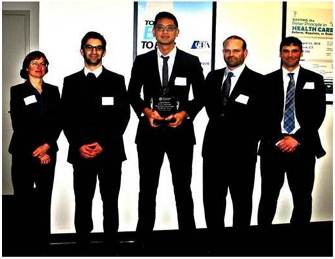 Hartford, CT – The CFA Institute Research Challenge is an annual global competition that provides university students with hands-on mentoring and intensive training in financial analysis. The Hartford CFA chapter hosted the local CFA Research Challenge competition for the first time this year. By participating in this competition, students gain real-world experience as they assume the role of a research analyst and are tested on their ability to value a stock, write an initiation-of-coverage report, and present their recommendations.
Hartford, CT – The CFA Institute Research Challenge is an annual global competition that provides university students with hands-on mentoring and intensive training in financial analysis. The Hartford CFA chapter hosted the local CFA Research Challenge competition for the first time this year. By participating in this competition, students gain real-world experience as they assume the role of a research analyst and are tested on their ability to value a stock, write an initiation-of-coverage report, and present their recommendations.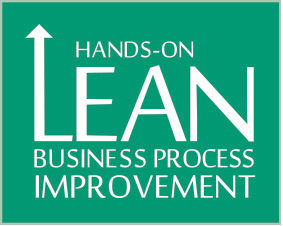
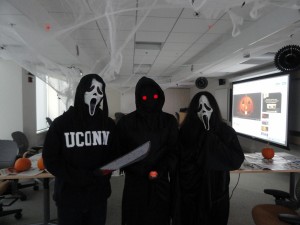

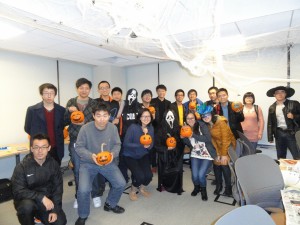
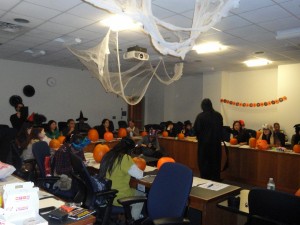
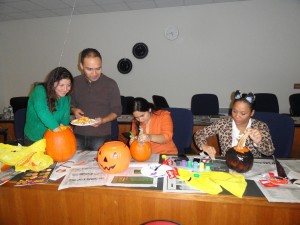
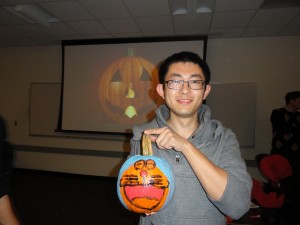

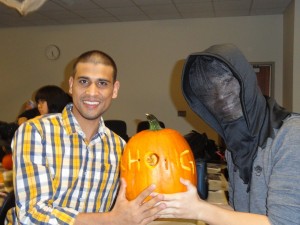
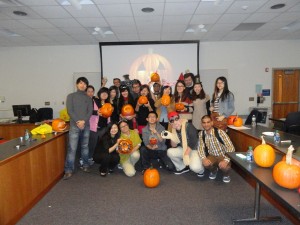
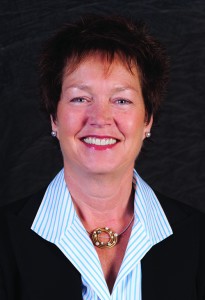 Colleen McGuire is the Director of the Graduate Business Learning Center, 100 Constitution Plaza Hartford, CT and is responsible for the
Colleen McGuire is the Director of the Graduate Business Learning Center, 100 Constitution Plaza Hartford, CT and is responsible for the 
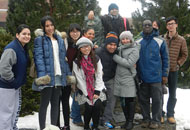
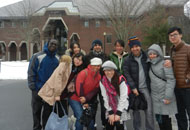

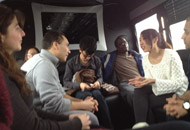
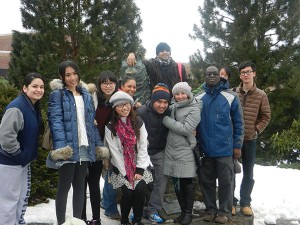

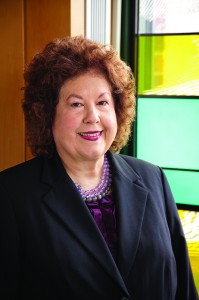 A distinguished educator and administrator at the University of Connecticut since 1976, Dr. Karla H. Fox retired from her faculty position as of August 1. Here, she reflects on her time serving the University and the School of Business, sharing some of her continuing projects and activities in her new position as Special Assistant to the Provost.
A distinguished educator and administrator at the University of Connecticut since 1976, Dr. Karla H. Fox retired from her faculty position as of August 1. Here, she reflects on her time serving the University and the School of Business, sharing some of her continuing projects and activities in her new position as Special Assistant to the Provost.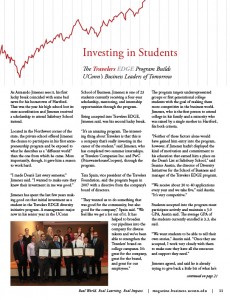 As Armando Jimenez sees it, his first lucky break coincided with some bad news for his hometown of Hartford. That was the year his high school lost its state accreditation and Jimenez received a scholarship to attend Salisbury School instead.
As Armando Jimenez sees it, his first lucky break coincided with some bad news for his hometown of Hartford. That was the year his high school lost its state accreditation and Jimenez received a scholarship to attend Salisbury School instead.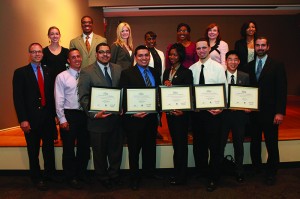 anted us to do something that was good for the community, but also good for the company,” Spain said. “We feel like we get a lot out of it. It has helped to broaden our pipelines into the company for diverse talents and we’ve been able to strengthen the Travelers’ brand on college campuses. It’s great for the company, great for the brand, and great for our employees.”
anted us to do something that was good for the community, but also good for the company,” Spain said. “We feel like we get a lot out of it. It has helped to broaden our pipelines into the company for diverse talents and we’ve been able to strengthen the Travelers’ brand on college campuses. It’s great for the company, great for the brand, and great for our employees.”